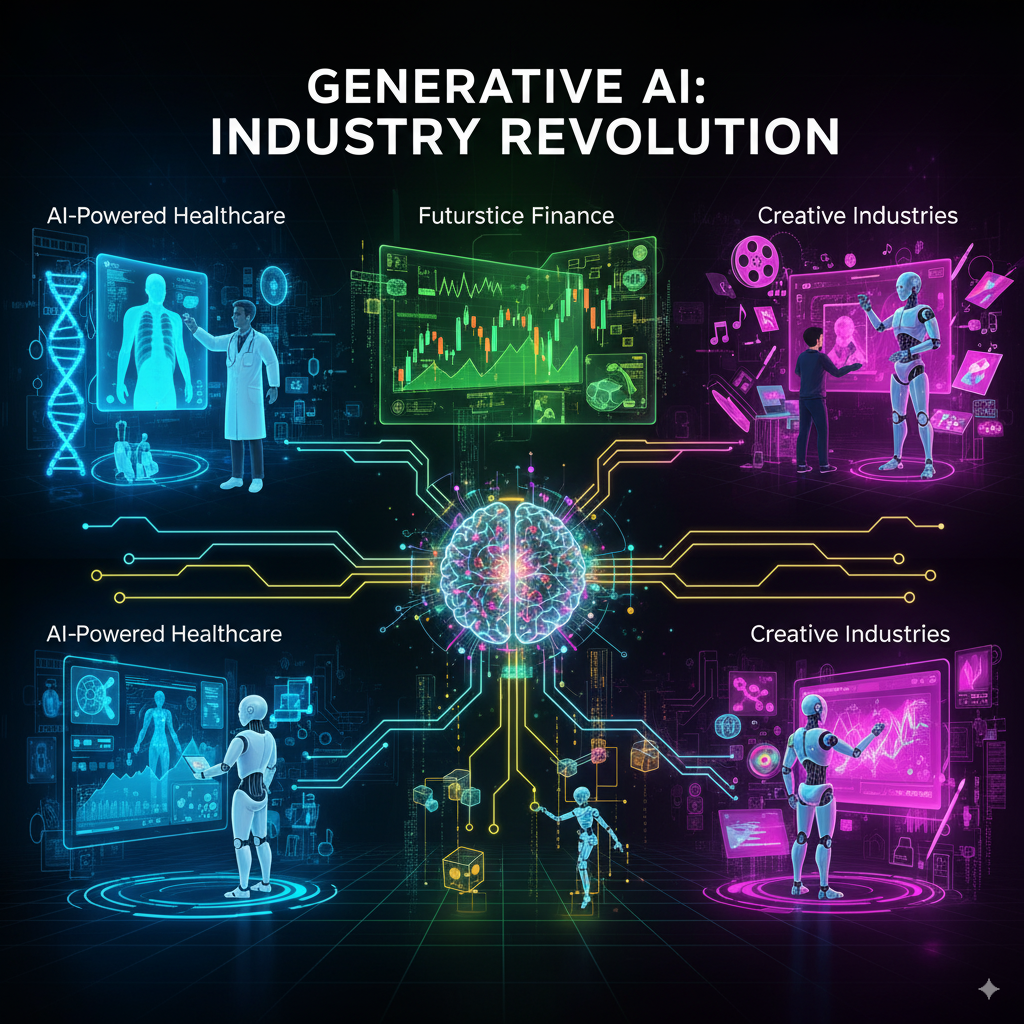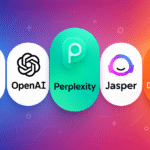Generative AI applications are reshaping the technology landscape, moving beyond hype to deliver real-world value across industries. This guide explores how generative AI is making a significant impact in healthcare, finance, and the creative sector, and why businesses should pay attention to this powerful trend.
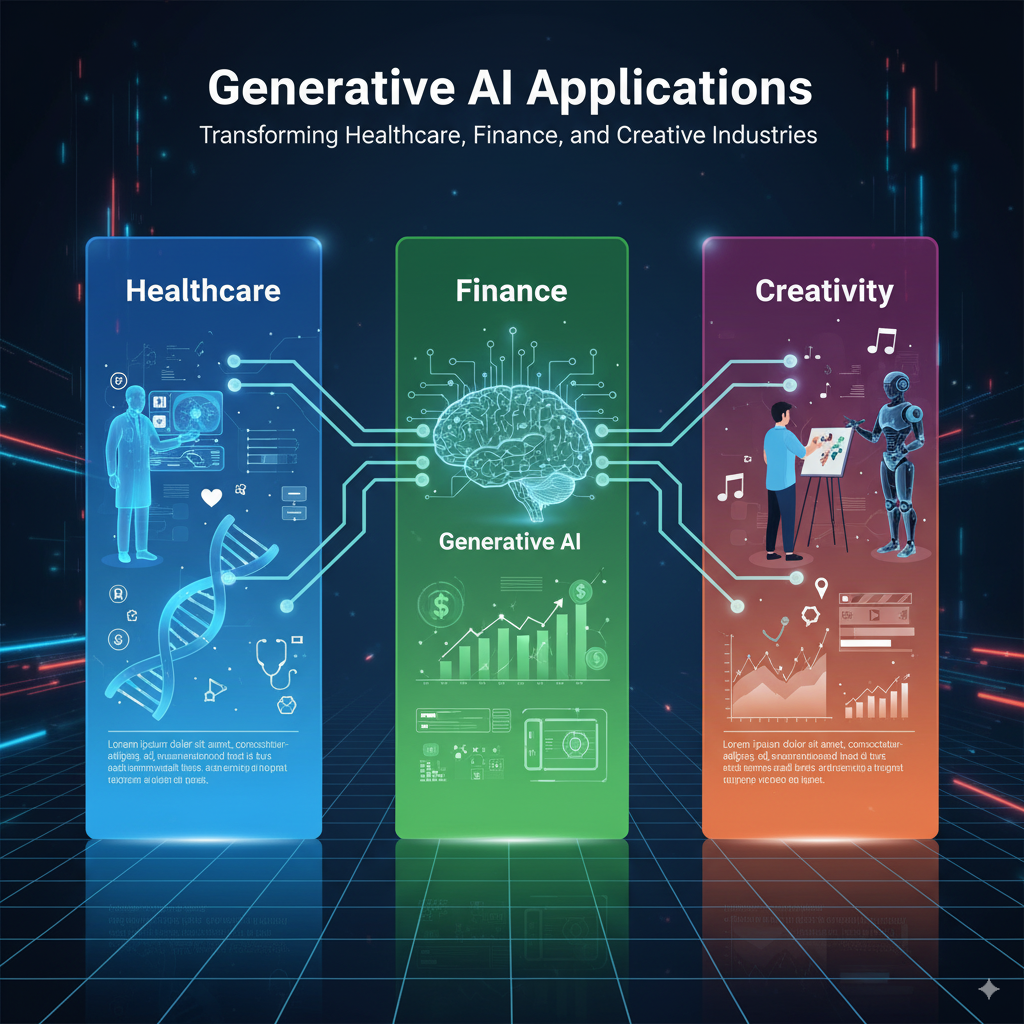
If you want to learn more about related technology trends, check out our latest articles on TechKnowlogy.
What Is Generative AI and How Does It Work?
Generative AI is a type of artificial intelligence that can create new content such as text, images, music, video, or even computer code. Unlike traditional AI, which mostly analyzes data and makes predictions, generative AI learns from huge datasets and then produces original outputs that mimic human creativity.
Examples include tools like ChatGPT (for text), DALL·E or MidJourney (for images), and Stable Diffusion (for art).
How Does It Work?
Generative AI works by using machine learning models, especially neural networks like transformers and GANs (Generative Adversarial Networks).
Here’s the process in simple steps:
- Training on Data – The AI is fed massive amounts of information (books, images, code, etc.) so it can learn patterns, styles, and structures.
- Learning Patterns – It understands relationships, such as how words connect in sentences or how shapes form objects.
- Generating New Output – When given a prompt, the AI uses probability and creativity to produce brand-new content (like writing an essay, generating an image, or composing music).
- Refinement – Some models improve output through feedback loops (e.g., humans rating results, or another AI checking the quality).
AI in Healthcare: Revolutionizing Patient Care and Research
Generative AI applications in healthcare are driving a new era in drug development and personalized medicine.
Accelerating Drug Discovery
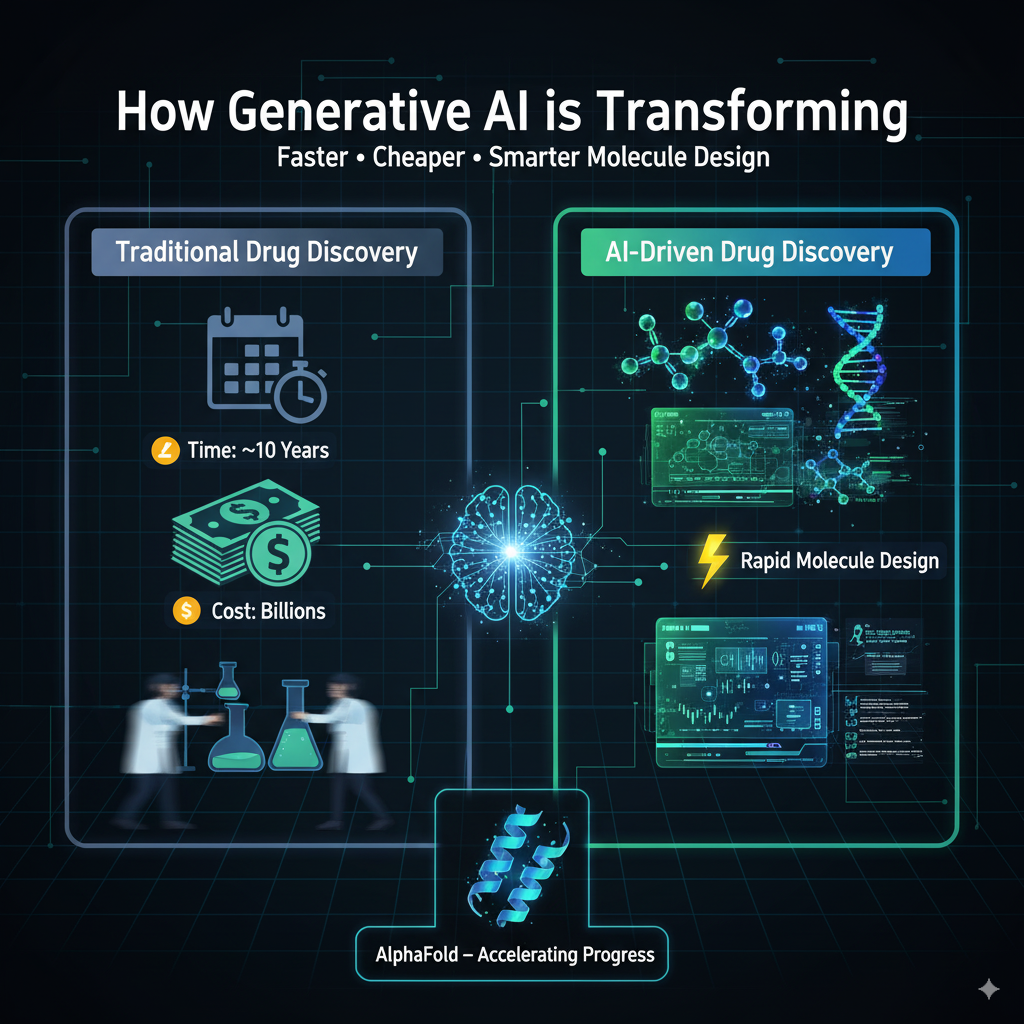
Drug discovery is traditionally a slow and expensive process, often taking ten years and billions of dollars to develop new treatments. With generative AI, researchers can rapidly design novel molecules using vast chemical and biological datasets. AI models like DeepMind’s AlphaFold have demonstrated accelerated progress, reducing candidate pools and costs. Learn more about AI in healthcare drug discovery.
Personalized Patient Treatment
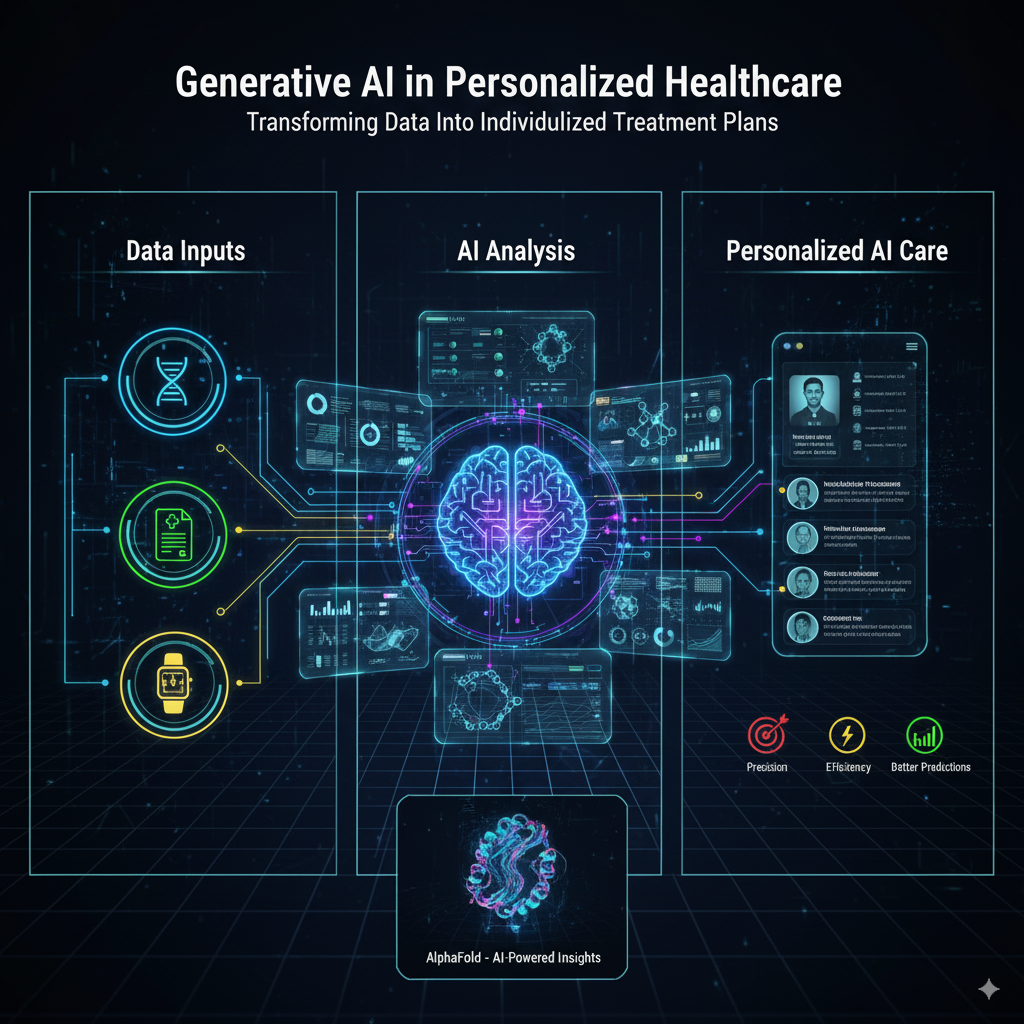
Generative AI models analyze genetic information, medical records, and lifestyle data to recommend individualized treatments. For example, AI-generated cancer treatment plans offer better predictions for each patient’s unique needs. Personalized care powered by generative AI is revolutionizing outcomes and empowering doctors to make data-driven decisions.
AI in Finance: Enhancing Security, Trading, and Risk Management
Generative AI applications in finance are streamlining complex processes and improving decision-making across the industry.
Advanced Fraud Detection
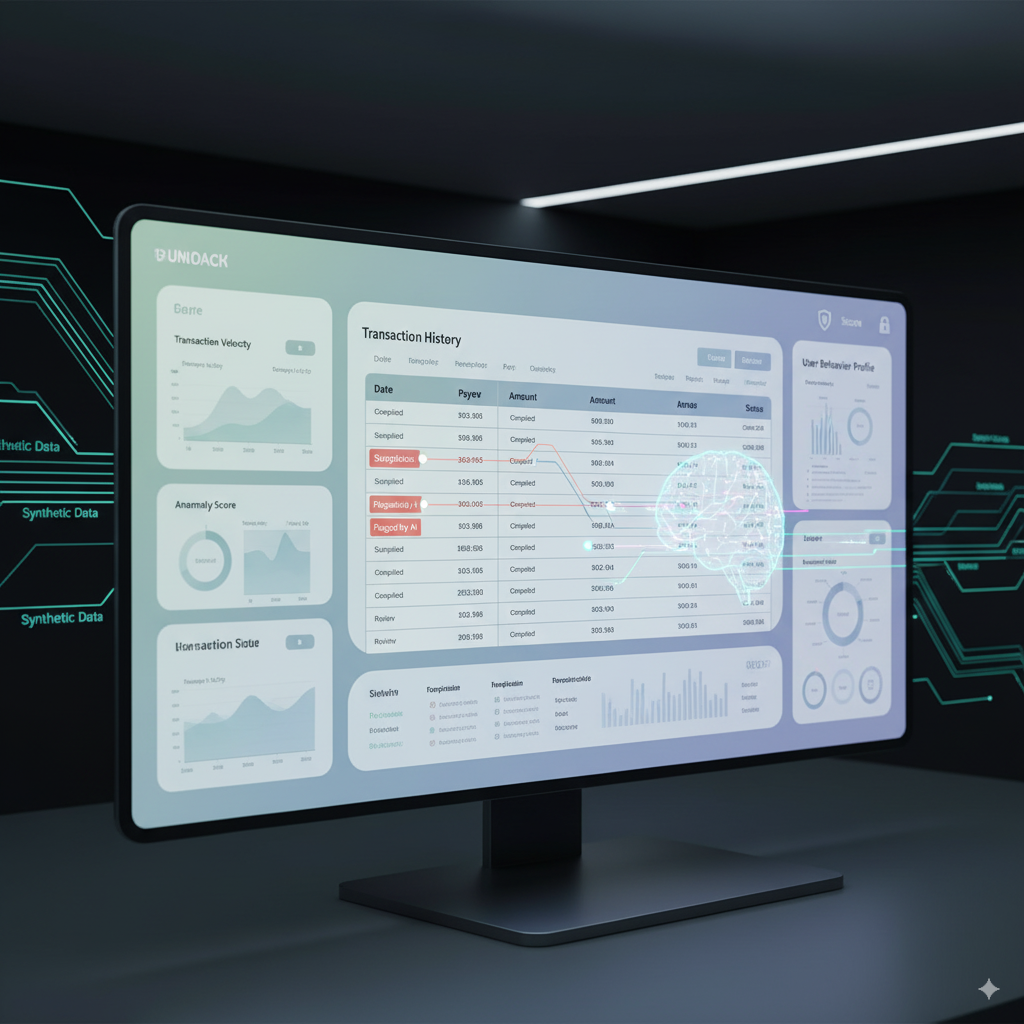
Financial institutions use generative AI to detect and prevent sophisticated fraud schemes. AI models learn transaction patterns, instantly flagging suspicious activity. These systems also generate synthetic data to train fraud detection models, protecting privacy while boosting security.
Algorithmic Trading and Risk Analysis
Investment banks and hedge funds rely on generative AI to run simulations, analyze market sentiment, and develop robust trading strategies. By modeling thousands of economic scenarios, these tools help organizations stress-test portfolios, manage risk, and adapt to volatile markets. For more, see this McKinsey report on AI in finance.
Creative Industries and AI: Empowering New Forms of Expression
The creative sector is seeing rapid change thanks to generative AI. From content creation to marketing and design, AI tools enhance both productivity and originality.
Next-Level Content Creation
Bloggers, copywriters, and designers use generative AI to brainstorm, draft, and visualize ideas. Tools like DALL-E generate unique images, while natural language models speed up writing and ideation. The result? Faster workflows and more creative output.
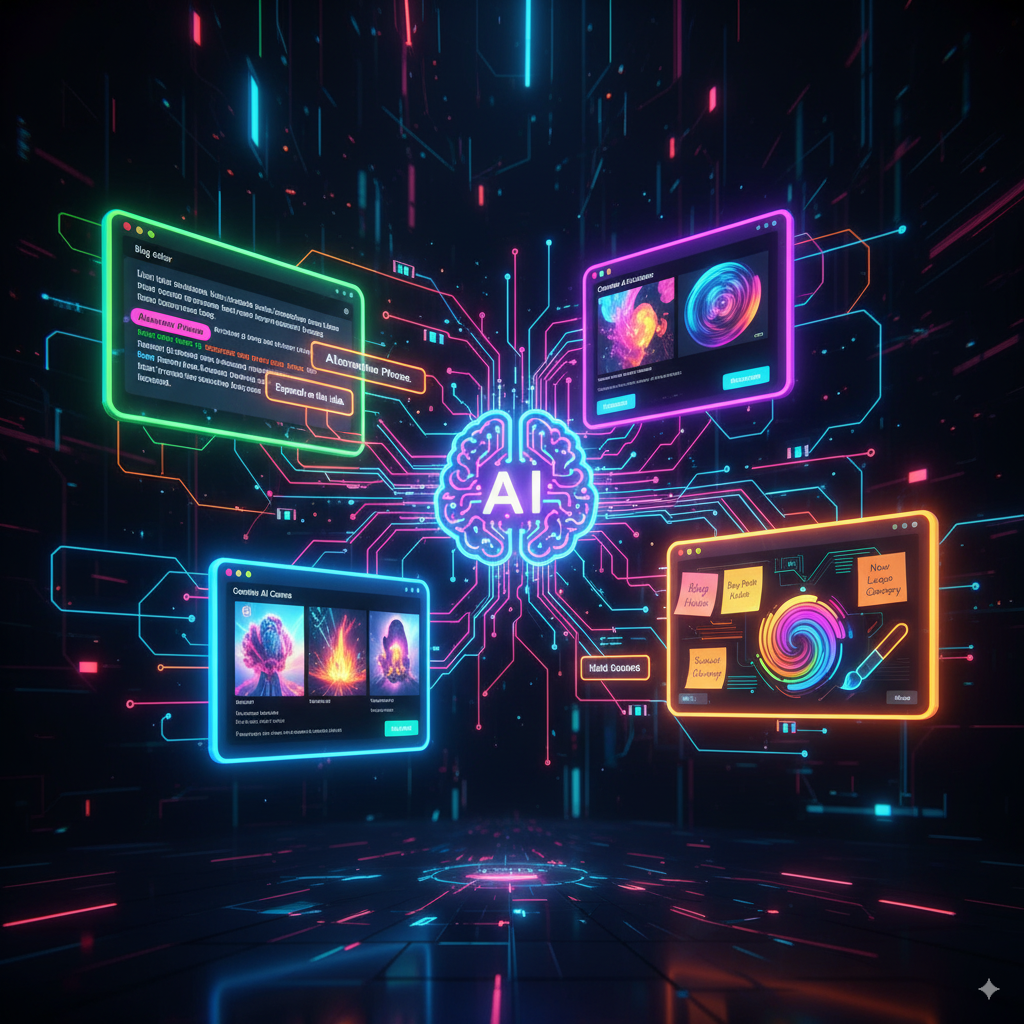
Hyper-Personalized Marketing
Brands are leveraging generative AI to craft custom marketing campaigns. By creating thousands of ad variants tailored to different audience segments, companies boost engagement and conversion rates. AI helps marketers deliver the right message to the right person, at scale.
Overcoming Challenges: Ethics and Data Privacy
Despite many benefits, generative AI also brings challenges. Addressing AI bias, ensuring data privacy, and creating robust regulations are essential for responsible adoption. Companies must balance innovation with ethical guardrails to build trust and avoid misuse.
Conclusion: The Future of Generative AI Applications
Generative AI applications are already reshaping healthcare, finance, and creative industries. By enabling smarter decision-making, personalizing experiences, and driving innovation, this technology is set to become even more influential in the coming years.
What do you think about AI in healthcare, AI in finance, and creative industries and AI? Share your thoughts in the comments or subscribe to TechKnowlogy for more insights and updates on the latest technology trends.

